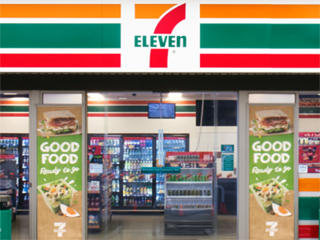
7-Eleven is paying a heavy price for its franchisees’ non-compliance, write Herbert Fischbacher, Principal and James Cox, law graduate at MST Lawyers.
On 6 December 2016, 7-Eleven, the largest petrol and convenience retailer in Australia, and the Fair Work Ombudsman (FWO) signed a Proactive Compliance Deed (PCD) that puts in place an onerous compliance regime for the 7-Eleven franchisor and confirms the FWO’s intention to hold franchisors responsible for the practices of their franchisees.
A PCD is the formalisation of what the FWO calls Compliance Partnerships. These are agreements between the FWO and what are seen as non-compliant businesses to rectify poor workplace practices.
Over the last few years, many large franchisors — including, McDonalds, Chemist Warehouse, Breadtop, Domino’s Pizza and La Porchetta — have entered into Compliance Partnerships with the FWO, to address a variety of workplace law compliance issues.
7-Eleven’s Deed
For 7-Eleven, the PCD is the outcome of the FWO’s widely publicised investigations into the franchise network, which disclosed concerning levels of non-compliance with the Fair Work Act 2009 (FW Act) and the Fair Work Regulations 2009 (FW Regulations).
This Deed formalises 7-Eleven’s legal obligation to implement a number of costly measures throughout the duration of the agreement to improve workplace law compliance.
What 7-Eleven has to do
1. Payroll infrastructure
7-Eleven has agreed to implement a central payroll system specifying lawful minimum rates of pay, which cannot be manually overridden by franchisees. On top of this, the convenience chain has also agreed to pay for and implement biometric shift scanning (fingerprinting) systems and CCTV systems in all franchise outlets, so that its head office can monitor and verify staff working hours against rosters and timesheets.
2. Workplace audit
At its own expense, 7-Eleven has agreed to engage an external auditor to conduct three annual workplace audits of franchisees and appoint a senior manager with responsibility for conducting internal auditing of time and payroll data. The outcomes of the external and internal audits will be reported back to the FWO periodically.
3. Franchising practices
Prior to the sale of any new or existing franchise businesses, 7-Eleven will provide prospective franchisees with the applicable minimum wages, loadings, penalty rates and overtime rates of pay for full-time, part-time and casual employees of each classification under the relevant industrial instrument.
To ensure that all prospective purchasers can make an informed decision, 7 Eleven will provide them detailed modelling of expected wage costs required to operate the particular store.
7-Eleven will further require its franchisees to sign a compliance commitment document certifying that its directors, officers and managers understand their obligations to comply with workplace laws.
4. Back-paying employees
7-Eleven has agreed to establish a hotline to receive, respond to and manage complaints from franchisee former or current employees. If any complaints are substantiated, 7-Eleven will require its franchisees to back pay employees, failing which the franchisor will satisfy the claim itself with ex gratia payments.
Franchisor liability, today and tomorrow
The concept of separate legal entity provides little comfort for franchisors when considering the workplace practices of their franchisees. The Fair Work Act allows a Court to find accessorial liability against anyone (not just those in the employer’s business) knowingly involved in a contravention of provisions in the Act.
This means that if a franchisor is aware of underpayments made by its franchisees, it could be found to be an accessory, and consequentially, face significant monetary penalties.
7-Eleven was not pursued by the FWO on this basis because, although it did not adequately detect or address deliberate non-compliance, the FWO could not prove (on the balance of probabilities) that 7 Eleven was aware of their franchisees’ contravention of workplace laws.
The Turnbull government has outlined in its Protect Vulnerable Workers Policy that it intends to introduce new offence provisions that capture franchisors and parent companies who fail to deal with exploitation by their franchisees/subsidiaries in situations where the former should reasonably have been aware of the breaches and could reasonably have taken action to prevent them from occurring.
The Policy also foreshadows a tenfold increase to maximum monetary penalties under the FW Act (currently $54,000 per breach for a corporation and $10,800 per breach for an individual).
What does this mean for franchisors?
Regardless of what law reform the Turnbull government can get through the Senate, franchisors already face the risk of significant brand damage and accessorial liability under the current workplace laws if their franchisees are not compliant with workplace laws.
We strongly advise franchisors to take the lead to protect their franchise network by ensuring all minimum standards are met.
In order to get ahead of the FWO, all franchisors should consider making improvements to their franchise network, drawing on the lessons learned from 7-Eleven’s tough Proactive Compliance Deed.
7-Eleven’s Proactive Compliance Deed is available on the FWO’s website. MST Lawyers conducts workplace law compliance audits on behalf of franchisors to ensure that their franchisees are compliant with relevant workplace laws.

